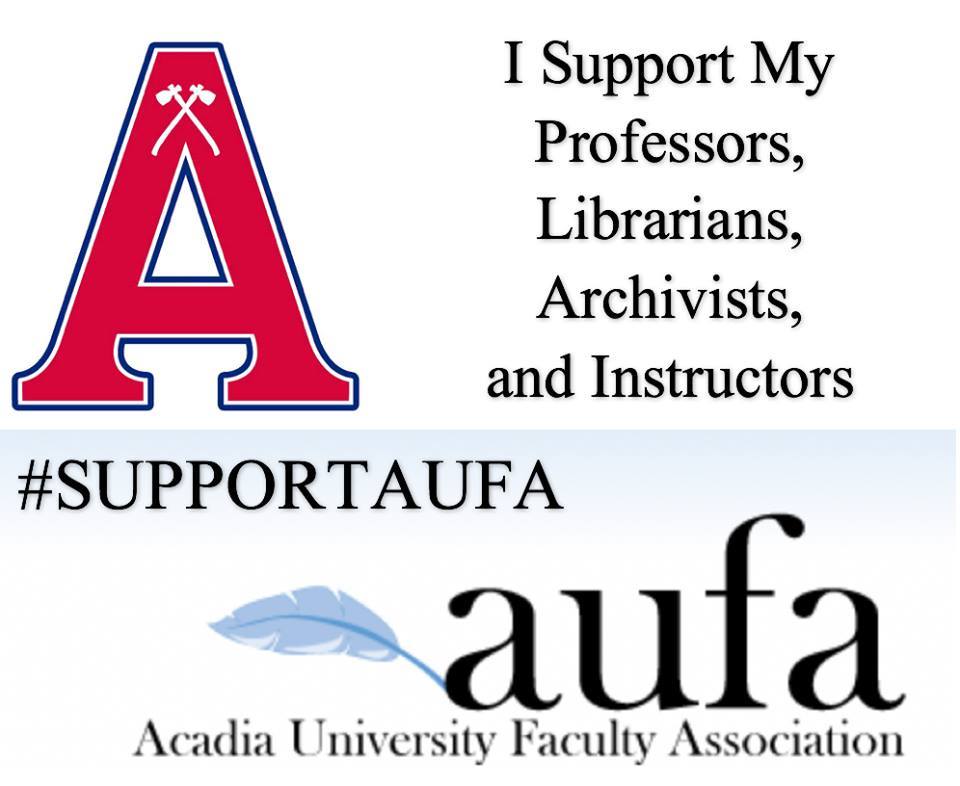Humans are inherently selfish. The only reason students volunteer is to have something nice to look at on their résumés in the hopes that future employers will think that they are well-rounded individuals and should be hired. That statement alone is enough to trigger emotions of outrage, I understand. But allow me a few minutes out of your day to explain to you that volunteering with such groups as the Acadia Global Brigades is an absolute farce. It provides doe-eyed naïve students that opportunity to take a profile picture to shape an altruistic image of themselves while leaving those in need ever-searching for actual solutions.
Let me pose to you a question: if you’re sick and in need of some life-saving injection, do you want a student administering that shot for you? Do you want a student giving you advice about your nutrition? Do you want a student building your homes? The answer is no. You want an actual doctor giving you medical attention. You want fully-trained nutritionists giving you advice. You want actual labour-skilled workers building your home. By participating with the Acadia Global Brigades or similar voluntourist groups, you are effectively treating the people seeking assistance as guinea pigs for your own “training.” These are students, unlicensed and not yet professionally capable to give assistance. In fact, if a student remained here in Canada to conduct the same actions, they would be charged with fraud. The fact that the Brigades takes place in Honduras makes everything okay though. It’s far away and so are the consequences. Who are you to play doctor with actual human lives?
The email I received advertising the Brigades asked me if I wanted to “get involved during [my] university experience.” Key word: experience. The Brigades is being pitched to me, to students, as an experience. Experience like going on a vacation, experience like going to a concert. Don’t try to pitch it to me that I’m going to be single-handedly responsible for improving “quality of life, resolve global health and economic disparities and work collaboratively with community members to work towards an equal world all while respecting local culture.” If you wanted to respect local culture, you should not be involved in perpetuating Western forms of “development.” It was the West who defined what it meant to be in poverty. It was the West who pursued to change the standards of other countries to match their own interests. Let the people of Honduras find there own ground-up solutions. Who are you to come in and dictate what the people need?
Do you ever think about the impact that you’re leaving behind when the voluntour is all said and done? You take a few pictures with local community members, with the ever-smiling kids. If you get a picture with a foreign child who’s all laughs and carefree, that earns you over one hundred likes of Facebook. Good for you. Push that social media agenda and half-assed attempt to tugging at people’s heart strings. You want to look like a good person, so go on the voluntour. Go ahead and build bonds with those kids. Play with them, sing with them, show them that you care. And when every thing is all said and done, you can go ahead and abandon them. Abandon them and go home to Canada, looking upon lovely pictures to remember them by. Leave them to their shoddily built houses made by 18 to 22-year olds with no building experience.
So, no. I don’t want to partake in this supposedly “amazing experience.” I don’t want to “find that out on [my] own.” I am aware of my actions, domestically and internationally. If you’ve thought about joining the Acadia Global Brigades, I suggest you read the book Damned Nations by Samantha Nutt, MD. Educate yourself before you unwittingly place somebody else at more risk then they already were. It would suck to find out that the house you built for a Honduran family came crashing down on them because it was poorly constructed. It would suck to be on the receiving end of a needle, being prodded like cattle. It would suck to make friends with a foreigner only for them to leave and not give so much as a second thought to how you were doing. Repairing schools and homes may make you feel great, but it may do more harm than good. Having good intentions doesn’t always lead to a good outcome.
The Acadia Global Brigades is a farce. Leave it to the professionals.





Classic amateur student writer trying to push buttons with the voluntourism spiel. You’re clearly not well educated on the ins and outs of Global Brigades and are probably looking to write something triggering, but if it ends up being too triggering at least you’re anonymous, right? As I’m the first to comment (from what I can see) I guess you’ve failed. Is Global Brigades a company that makes money from participants? Yes. Could the money spent by students be better spent in these countries if students didn’t attend at all? Probably. But then again, where would the sales pitch be in that? It sells this ‘experience’ to students. Global Brigades is definitely a business, and it doesn’t attempt to hide that fact. While maybe a little less hedonistic than the stereotypical ‘grad trip’, Global Brigades is still just an opportunity for students to see the world; travelling to foreign countries to mark the end of a school year/university career has become the norm of Western twenty-somethings. Contrary to your shit investigating, however, it does do quite a bit of good. They’ve tapped into a lucrative market where students can spend money to do fun stuff but also gain medical/dental experience through shadowing, create public health infrastructure, water systems, business plans, etc., etc. etc., all taking place under the keen eye of Honduran medical/dental professionals, Honduran contractors, Honduran business professionals, the list goes on; all hired by the organization to ensure that unskilled students (like my previous self) don’t fuck up making latrines and wells or architecture blueprints. Students can literally do whatever they want – they can sit there and take pictures with the kids and pet chicken if that’s what they’re into, or they can literally force themselves into exhaustion by mixing concrete to help with the work. Who cares? They paid for it, and in the end trained adults are hired to do most of the work anyway. Once again, students are paying for the experience, which just so happens to help a couple of families out in the process. Most of what Global Brigades does is with the idea that communities that they work with will become self-sustaining. They have, like, eight different chapters that all target a particular issue within the country. There’s also an intricate amount of work done by the organization to ensure that these acts of charity do not debilitate Honduran residents, as residents must fund a portion of all work done, and play a huge part in getting the work done as well. Global Brigades is definitely not perfect, but there are definitely some Honduran residents who are pretty stoked about the new outdoor stove so they’re not inhaling smoke, clean drinking water, ability to start a business, and/or medical/dental work that they’re not receiving from their current government.
David Rieff’s critique of Samantha Nutt’s book:
For someone as alert (as allergic) to the humanitarian paternalism of international NGOs, Nutt is being awfully maternalistic herself here, perpetuating the stereotype of the global south as helpless, innocent victim. Such an approach robs people of their agency, of their existence as adults with political opinions and loyalties, instead infantilizing them: If only we in the global north would stop selling these weapons, wars would end, or never start in the first place.
Patronizing comes in all forms. To assume Global Brigades is the hero these countries need, and we as Western-world heroes swoop in and fix everything, is definitely patronizing and an uneducated statement. These issues are systemic, and very difficult for one organization to rectify. But sitting idly by isn’t the better alternative. I quit Global Brigades after three years because I couldn’t justify spending money on helping people in need when citizens of my own country weren’t able to access clean drinking water (re: Neskantaga First Nation), and very little was being done for them.
Does taking a picture with a kid in Honduras and making it your profile picture make you an asshole? Kind of, yea. But does writing an article advising “the people of Honduras [to] find there own ground-up solutions” when their corrupt government is doing minimal in the line of figuring it out any better? Nah. You’re just as big of an asshole as the rest of us.
this is such a good rebuttal! The last paragraph gave me goosebumps, great closing. Hats off to you Eileen
There needs to be more education on what the global brigades company does and how it is structured to be a holistic community.
This isn’t a fair article to publish and it’s utter bullshit.
There needs to be an eye opening for whoever has decided to write and publish this article.
Thank you for taking the time to share your thoughts about Global Brigades. As a long time volunteer with the organization, I want to make it clear that criticism, feedback, and thoughtful discussion on the field of international development and the role that students can play will always be welcomed by this organization and its volunteers. In fact, Acadia Global Brigades has taken part in many of these discussions, hosting 2 national GB conferences, attending critics panels, and participating in student leadership conferences all over the states and Canada to tackle the hard questions. In the year’s worth of meetings that volunteers take part in before going on a brigade, they engage with these topics as well (e.g., a meeting titled “You Are Not Heroes”, a session dedicated to the damage of voluntourism, etc) to understand the role they are playing in this holistic, sustainable development model.
Can students make an impact in one week? Why use students instead of skilled local laborers? Is this just the new form of colonialism? These are legitimate questions for donors, supporters (or not) and students to have when first learning about Global Brigades because without doing research beforehand, it can be easy to paint this organization with the same brush as other student volunteer initiatives. The key issue here is that the opinions you’ve shared in this article have been made without doing any background work to learn about what you’re talking about. This article shows a clear lack of understanding of the field of development work, how Global Brigades fits into it, and even what volunteers actually do on their brigades (e.g., GB volunteers do not build homes or take part in any medical procedures that they are not licensed to perform in Canada).
To anyone reading this article who wants to learn more about the work that Global Brigades actually does and the impact it makes in its Central American and West African partner countries, I encourage you to engage in conversation with Acadia volunteers, involved faculty and staff, or Ray Ivany himself, who is a strong supporter of GB and Acadia’s chapter. Involve yourself in a productive discussion about “voluntourism” and the year-round work that Global Brigades does to make sure that their organization does not contribute to the exploitation of under-resourced communities for the benefit of a good profile picture. Offer up thought-provoking questions or your own opinions on why a student-led development model can’t work, or other potential solutions to resolve global health and economic disparities. At the very least, please actually look at their website to learn what they do before publishing an attack online. For more resources, visit globalbrigades.org/holistic-model-new, or medicalbrigades.org/sustainability.
I think before you write an article like this, it is important to fact-check to ensure you are not making false claims or incorrect assumptions. It is apparent throughout the entirety of this article that the author did not research Global Brigades and the values they stand for as a HOLISTIC organization. Instead, the author painted it with the same brush as many other, band-aide fix organizations. While Global Brigades stands for empowering students, it also stands for students empowering communities. I recognize that the medical/dental brigades can be more of a band-aide fix to the problem, rather than a holistic solution. This is why they have introduced 7 other brigades to address the root cause of recurrent, preventable illnesses seen in their clinic as a result of poor living conditions, lack of access to clean water, and low socioeconomic status. Once these programs are in place, Global Brigades gives a team of individuals in the community jobs to ensure that everything is well kept and running smoothly. In fact, the vast majority of people working for Global Brigades are HONDURAN and the support of students simply assists in keeping this amazing organization going. Now, thanks to the Global Brigades team, community members, and the work of thousands of students, there are several holistic communities in Honduras. I can say from first hand experience going to a community a year before and after it was deemed holistic, these initiatives are in fact making a difference in the quality of lives of others, therefore they are worthwhile. So while you may think Global Brigades is a “farce” and that we should “let the people of Honduras find their own ground-up solutions”, I think a student led initiative may not be a perfect solution to helping those in rural Honduras meet their goals, but in the absence of any realistic alternatives on how to improve their situation otherwise, I will continue to support Global Brigades.